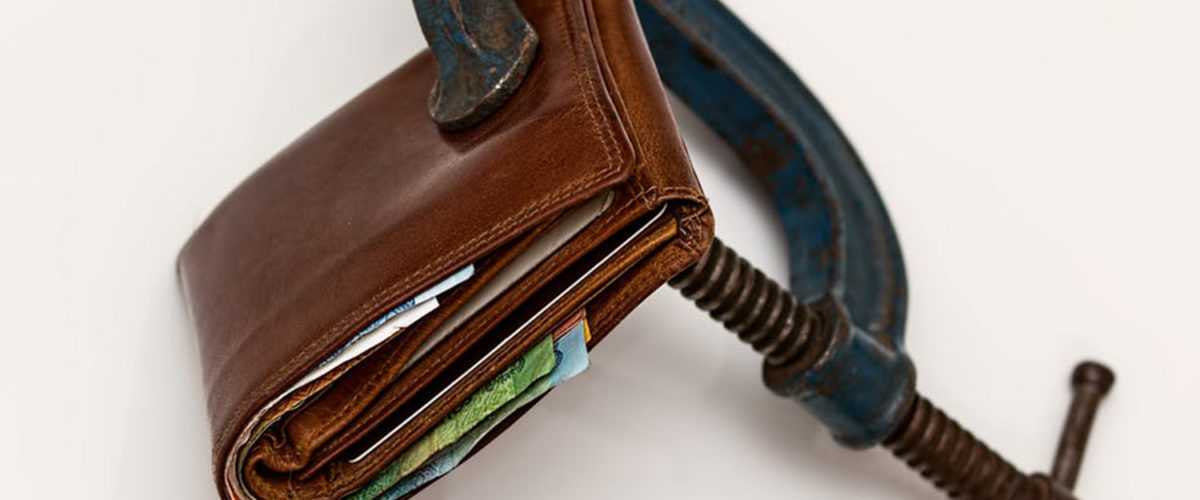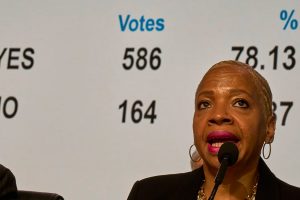 The epistemology of our shared morality is an incredibly tricky thing.
The epistemology of our shared morality is an incredibly tricky thing.
Trickier even than, say, spelling epistemology without the help of autocorrect or using it convincingly as an opening entree for something that will end up being estimated as worthy of readership by the amount of smiley or frowny faces under its headline.
If you’re still with me, epistemology is simply the way in which we make sense of how we know what it is that we know (i.e. “our knowledge”), or, maybe more particularly, how we set out deciding what is and isn’t a “truth” or “justified belief.”
So, when I say something alienating like the “epistemology of our shared morality,” I’m attempting to uncover what typically drives how we know something to be right or acceptable or evil or destructive. I don’t just mean a cognitive grasp of the inherent qualities of a value or a vice, but an almost cellular, gut-level connection to the internal tapestry automatically linking our beliefs, actions and justifications.
Which is, again, a rather high-falutin’ way of explaining (perhaps a bit antiseptically) that whenever I find myself trapped in line behind a shopping cart whose metal wheels noisily limp under the sheer weight of discount polyester and dented patio furniture, my automatic cellular morality comes pouring out of me like a fire hydrant from one of those Spike Lee movies set in a sweltering Brooklyn borough.
“CAN YOU BELIEVE THIS?! (said neither out loud nor to anyone in particular)”
“THIS ISN’T A NEIGHBORHOOD BAZAAR IN THE KINGDOM OF AGRABAH, SO WHY ARE YOU HAGGLING WITH THIS UNDERPAID CLERK OVER THE DEGREE OF THE DISCOUNT RELATIVE TO THE DEGREE OF THE DENT IN THAT WOBBLY PATIO CHAIR YOU’VE DRAGGED LOUDLY THROUGHOUT THE ENTIRE STORE BEFORE DECIDING TO FINALLY GET IN LINE RIGHT IN FRONT OF ME?”
“LOOK, IF YOU CAN’T AFFORD IT, YOU CAN’T AFFORD IT. BUT IT LOOKS LIKE YOU COULD AFFORD THOSE CIGARETTES AND SODAS FROM THE AISLE COOLER SO MAYBE SPEND MORE WISELY AHEAD OF TIME.”
A few moments after exiting the oppressive confines of a store whose name literally invites its patrons to “hunt” for “bargains,” and where I’m finally able to dispossess myself of the demonic spirit of red-faced talk radio hosts, I ask:
So, where did that come from?
I wish I could say this was the first time that kind of acerbically judgmental tripe has bubbled up within me at the sight of someone in poverty making life choices I disagree with, all the while I’m in line, at the same store, “huntin’ bargains” right behind them. There is a mantra many of us in America implicitly employ as the ultimate justification for any and every decision we make as individuals, as families, as organizations, and as a nation:
“Can we afford it?”
As in: Do I currently have access to enough currency to shiplap my bonus room?
If yes: proceed.
If no: borrow.
If (really) no: turn on Fixer Upper and YEARN for the next 45 mins.
Our ability “to afford” is a moral compass we use to navigate an incredibly complex milieu of choices, decisions, goals and experiences before us. It’s clear, it’s concrete and it’s mathematically justifiable.
I would argue, affordability isn’t just a component of our moral decision-making; it is the very whole of our morality.
Which, on the one hand, may help to explain the overabundance of think pieces and newsreels all explicating the dangers inherent in letting food stamp recipients run amok in grocery stores and gas station markets, as they selfishly and shortsightedly fill their carts with Swiss Cake Rolls, Mountain Dew and discount shrimp cocktail. While, on the other, the relatively small number of articles we see decrying the decadence of an economic worldview resulting in health-care CEOs receiving payments in some instances totaling $34,000 a day*.
I mean, 34,000 DOLLARS OVER THE COURSE OF A LITERAL 24-HOUR DAY.
For comparison: 15.5 million children in the U.S. live in families earning less than $24,000 a year.
I mean, 24,000 DOLLARS OVER THE COURSE OF A LITERAL 365-DAY YEAR.
After laying waste to the pensions and livelihoods of millions of Americans following the financial crisis of 2008, Wall Street executives immediately turned a sizable portion of the 700 billion dollars of government bailout money (738 million of it in the case of Citigroup) into bonuses for their executives (bonuses for, I’m assuming, losing 18.7 billion dollars that year). Yet, even today we are discussing the “fiscal morality” of continuing to provide health care from the federal coffers for our oldest, youngest and most vulnerable citizens because, in a few words:
“We can no longer afford it.”
For those keeping score:
When the market is swooning, we can afford it.
When the poor are swooning, we cannot afford it.
To call this morality into question is especially difficult, not simply because it easily devolves into demonizing either the 1 percent at the top or the 21 percent of children and families living in poverty at the bottom, but also because it implicates all of us, who (across religious perspectives) pay homage to the god of our great land on an almost minute by minute basis. Theologian and Sociologist Harvey Cox writing almost 20 years earlier for The Atlantic, puts it brilliantly:
“Today The Market’s fickle will is clarified by daily reports from Wall Street and other sensory organs of finance. Thus we can learn on a day-to-day basis that The Market is ‘apprehensive,’ ‘relieved,’ ‘nervous,’ or even at times ‘jubilant.’ On the basis of this revelation awed adepts make critical decisions about whether to buy or sell. Like one of the devouring gods of old, The Market — aptly embodied in a bull or a bear — must be fed and kept happy under all circumstances. True, at times its appetite may seem excessive — a $35 billion bailout here, a $50 billion one there — but the alternative to assuaging its hunger is too terrible to contemplate.”
When it comes down to it, where we live, where we eat, where we shop, what we drive, where we school our children, where we worship, how we vote, what kind of health care we receive, and even how we relax are all determined by the sometimes bipolar swings of our financial market. The market’s power over us only increases when we remember the average person spends somewhere around 90,000 hours over the course of his/her life working a job that (for many of us) was decided through careful consideration of the amount of money the market would afford us for our work.
Why do you think so many of our “best and brightest” from the rarefied air in Cambridge end up in finance so soon after graduation? What convinced them? It must have been all that selfless extra-curricular volunteering they did before being accepted.
If you were unfortunate enough to ignore the whisperings of our country’s god, and instead chose a career path motivated out of a naive commitment to “helping people” or “teaching” or some other liberal arts pursuit that gives you incredible insight into how much foam goes on the latte of a STEM graduate impatiently heading to work, you are reaping the just rewards of your ignorance.
Because the market doesn’t make mistakes.
Only we do.
I’m a pastor, and because of that, I try my best to spend time reading the teachings of Jesus. If you aren’t familiar, the man can be a bit confusing from time to time, but one thing he was doggedly clear on was the toxic effects (individually, societally, theologically) of somehow believing that human value has anything at all to do with financial standing. He even went so far as to say that a faith-like trust in monetary gain and a faith-like trust in the Judeo-Christian God were incompatible:
“No one can serve two masters: Either he will hate the one and love the other, or he will be devoted to the one and despise the other. You cannot serve both God and money.”
In my experience both in pulpits and out of them, what ends up determining our feelings about the success of our churches, our jobs, our families, our kids’ schools, and our lives is the numerical metric provided by the market, rather than the metric of sacrificial, self-disinterested love embodied by an itinerant, homeless, Near-Eastern rabbi executed by a world superpower occupying his homeland. Which, to be fair, can still be incredibly numerical: like when churches give away entire parts of their budgets wholesale to failing schools, homeless shelters, and individual congregants in debt. Or, as Norfolk, Va., pastor/bishop Vernie Russell said after one of Mount Carmel Baptist Church’s monthly “debt liquidation revivals”:
“They couldn’t serve their master when they were busy serving MasterCard.”
The morality of affordability transcends denominations, creeds, theologies and worship preferences defining our collective Sunday morning plans, reaching to the heart of who we are and why we are. So the next time you find yourself exasperated at the end of a long sojourn through mountains of bargains on the weekend, sizing up the fellow hunters around you in line, please remember that the rising indignation you feel at those who cannot afford what you can, maims us, fundamentally. If left unchecked it will eventually turn on us, bringing us face to face with the terrifying truth that all we are is a credit limit, a fee-free checking account, a low-mileage SUV with leather interior, an enviable cul-de-sac, a relatively stable 401k, a good school zone, and a paycheck to be spent and remembered no more. Or as the author of the Book of James put it much earlier than me:
“You are a mist that appears for a little while and then vanishes.”
Happy huntin’.








































































